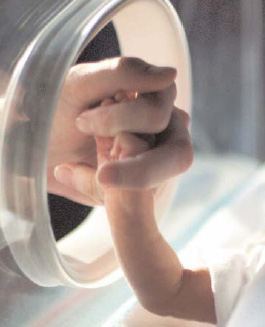I spent the five happiest years of my life in a morgue. As a forensic scientist in the Cleveland coroner’s office I analyzed gunshot residue on hands and clothing, hairs, fibers, paint, glass, DNA, blood and many other forms of trace evidence, as well as crime scenes. Now I'm a certified latent print examiner and CSI for a police department in Florida. I also write a series of forensic suspense novels, turning the day job into fiction. My books have been translated into six languages.
I doubt it. It depends on how little it was, and if those juvenile records are sealed (they usually are) but if it didn't prevent you from joining the military I'm guessing it wouldn't affect you working in a crime lab.
I’m not a pathologist but I think it’s possible even if not likely. Bodies start to stiffen in 1-2 hours but rigor reaches its peak somewhere around 12 hours. It can depend a great deal on temperature, body type and medical conditions.
I'm so sorry but I don't know. I'm not trained in digital forensics.
Answer to both is: maybe. If she was buried in the earth over 20 years, unless the ground was always frozen or so dry that she mummified, there will most likely be only skeletal remains left. So they might be able to establish identity from dental records, medical device implants (say a pacemaker or an artificial hip), or something left in the grave with her (like an ID card). I believe anthropologists can tell from the pelvic bone if someone has given birth, but not if pregnant at the time of death. However depending on how far along the baby is, they might have their own bones present so then it would be obvious. Best of luck!
Nurse Practitioner
 Could a nurse practitioner do the job of a primary care physician?
Could a nurse practitioner do the job of a primary care physician?
Social Security Employee
 How do you check to see whether someone claiming disability is actually disabled?
How do you check to see whether someone claiming disability is actually disabled?
Obstetrician Gynecologist
 Do you find it creepy when men want to go into gynecology?
Do you find it creepy when men want to go into gynecology?
Alas, I really don't know. I think it depends on many cirucumstances, the temperature, the pH and the humidity. I can tell you that covered corpses break down much more slowly than those exposed to air so there's a good chance, if the environment was somewhat cool and dry, that there would be a good amount of flesh left on the body. If the environment was hot and humid, it might be completely decomposed into inches of sludge. Hope that helps.
I don't know exactly, but I know from personal experience that bruises are strange and unpredictable. I can bump into something terribly hard and have no mark, and then have a huge bruise from some injury I only very vaguely remember. I also don't know exactly how long they take to fade, and that might also be affected by how deep they were in the first place or the physical condition of the person. Sorry I can't be more help.
I honestly have no idea. I don’ t think it would necessarily hurt you. What will be more important at hire is your training and experience—and it depends on what you want to do. If you want to be a DNA analyst you’ll probably need postgraduate degrees. If you want to do crime scene work you will need hands-on college courses and preferably an internship or two. If you want to do laboratory analysis then some sort of laboratory experience will be best. Is there a way you can present your travels as having increased your knowledge of forensics?
-OR-
 Login with Facebook
Login with Facebook (max 20 characters - letters, numbers, and underscores only. Note that your username is private, and you have the option to choose an alias when asking questions or hosting a Q&A.)
(A valid e-mail address is required. Your e-mail will not be shared with anyone.)
(min 5 characters)
By checking this box, you acknowledge that you have read and agree to Jobstr.com’s Terms and Privacy Policy.
-OR-
 Register with Facebook
Register with Facebook(Don't worry: you'll be able to choose an alias when asking questions or hosting a Q&A.)